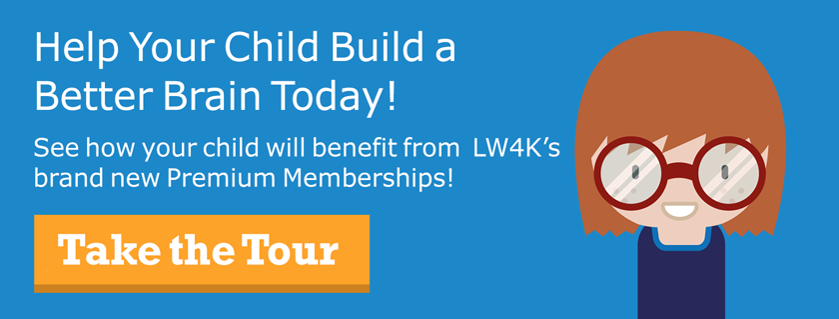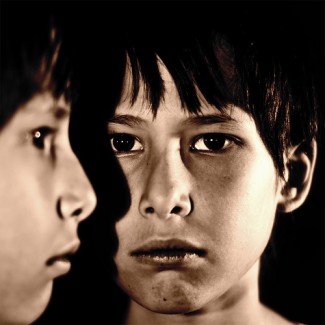Cove (Music Journal)
LQ: 8.8
Recommended Age: 8+
Skills Used: Organization, Self-Awareness
Depression is one of the most common psychiatric difficulties experienced by children. While most children and adults sometimes feel sad and blue, a diagnosed depression tends to be more severe, long lasting, and interferes with normal activity. There are a variety of “Mood Disorders” including Major Depression, Dysthymia (mild depression), and Bipolar Disorder.
 Signs of depression difficulties may include:
Signs of depression difficulties may include:Many children who do not have a diagnosed Anxiety or Major Depression Disorder will still experience mild difficulties with stress, worry, sadness, low self-esteem, and a lack of energy. These more modest difficulties may not require the same level of intervention that a child with a diagnosable depressive or anxiety disorder might, but they may be helped by many of the technological and academic strategies presented here.
 https://js.hscta.net/cta/current.js//
https://js.hscta.net/cta/current.js//
Many children who do not have a diagnosed Major Depression or Mood Disorder will still experience mild difficulties with stress, sadness, low self-esteem, and a lack of energy. These more modest difficulties may not require the same level of intervention that a child with a diagnosable depressive disorder does, but may be helped by many of the technological and academic strategies presented here.
| Kids with Depression: | Games, Apps, and Other Digital Media |
| May appear to be sad and have difficulty enjoying themselves or having fun. | Good video games and other digital media are fun and encourage playful interactions with the game and with those who are nearby. |
| Can become easily withdrawn and socially isolated from friends and family. | Many video games are social by nature. Kids who are involved with multi-player games or play with siblings or family are emotionally engaged. |
| May be lethargic and lack the energy to initiate or complete tasks. | Active and movement-based video games provide reinforcement, encouragement, and exertion of energy. They are particularly good for reducing stress and tension as a result of the physical exercise from the games. |
| May experience a sense of low self-esteem and identify themselves as failures. | Video games are a great opportunity for success as good games present a challenge as well as the capacity for mastery. As a result, players are often able to regularly view their progress and successes. |
 Self-Control: Children with these difficulties have problems regulating their emotions, often displaying more signs of sadness and anger than of positive emotions.
Self-Control: Children with these difficulties have problems regulating their emotions, often displaying more signs of sadness and anger than of positive emotions. Many children with depression are disproportionately concerned about how others rate their performance. They benefit from software and games that build mastery and success. As a result, these children are drawn to software and websites that facilitate practicing academic skills on their own. This allows them to not feel judged by others when they fail because only they and the computer program recognize that they made a mistake.
Many children with depression are disproportionately concerned about how others rate their performance. They benefit from software and games that build mastery and success. As a result, these children are drawn to software and websites that facilitate practicing academic skills on their own. This allows them to not feel judged by others when they fail because only they and the computer program recognize that they made a mistake.
Children with depression, and other psychiatric disorders tend to perform more poorly in school due in part to problems with sustaining their attention and effort and a loss of motivation for academics. Digital media, software, and video games that engage the child in the process of learning may help a child complete more schoolwork and take on challenges they might not otherwise.
Here are some strategies where video games and other digital media can support and enhance the academic success of children with depression:
While video games and other digital media can be helpful in improving mood, increasing activity, and even releasing physical tension, there are a number of concerns about the use of these tools for children with depression.
As a result, we encourage parents to be very judicious about and monitor the use of digital media for children who have depression. Consult the table below to see what you should watch out for, and how you can go about avoiding these problems.
| Cautions | Solutions |
| Children who are depressed run the risk of become socially isolated as a result of spending too much time involved in solitary digital play, staring at a screen for hours on end, and not truly interacting with others. | Require that your child predominantly play multi-player games, and games that facilitate family interactions. Many video games are social by nature. Kids who play these social games with friends and family are more emotionally engaged than kids who only play games alone. |
| Video games and other digital media can become their major source of entertainment and positive feelings, and as a result, a child may refuse to participate in other activities, do their homework, or engage with family members. | Because it may serve as a source of comfort and positive moods, it is important not to simply take gaming away from a child who is displaying these behaviors. Instead, ensure that your child is also involved in a variety of other activities, and is only allowed to play games after engaging in these other activities first. |
| Kids with depressive disorders may chose to engage with digital play instead of the physical activities that are part of a healthy treatment process for anxiety and depression. | In order to ensure that your child’s digital media use is positive in nature, you could engage in movement-based video games that an entire family can play. Encourage her to play active games like Wii Tennis or Kinect Adventures. |
Treating anxiety and depression requires far more than the digital strategies we can teach you. A number of traditional strategies work very well in conjunction with the methods described at LearningWorks for Kids. Common interventions for children with anxiety and depression difficulties include behavioral, supportive, cognitive, medical, and life-skill approaches.
Becoming a teenager means more independence and responsibility. You need to think for yourself and about yourself. You may find yourself assessing your own strengths and weaknesses, and you probably […]
You probably don’t know another teenager who doesn’t get irritated with their parents, siblings, or friends sometimes. Mood swings are a part of life. But if you find your moods […]
Feeling anxious or stressed is part of normal development. So, What can teens do about stress? Teenagers who find themselves feeling worried about their friendships, concerned about how they look, […]
All membership plans come with full access to our entire suite of tools learning guides, and resources. Here are a few of the ones we think you’ll like the most: